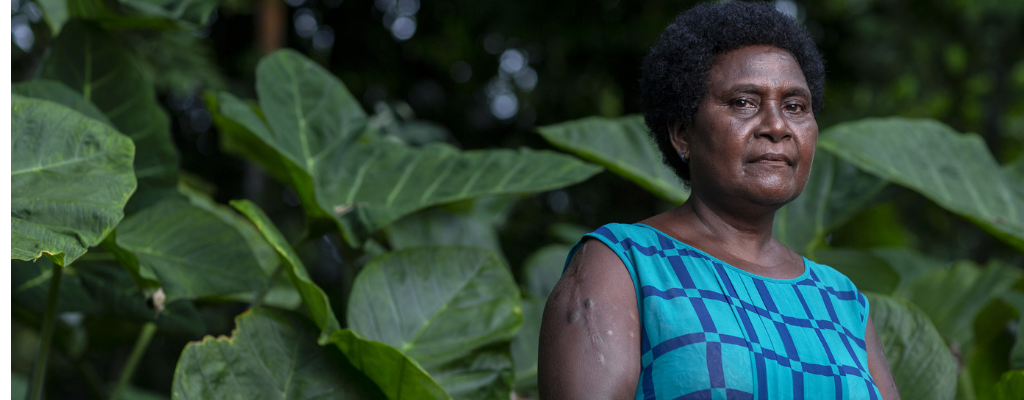
Freedom from Violence
Explore evidence on gender-based violence response and prevention, including research briefs and practical toolkits.
Triple Jeopardy Workshop Cards (English)
Cambodian women with disabilities experience multiple disadvantages resulting from the interplay between gender, disability and poverty. This participatory action research has found that women with disabilities face similar levels of sexual, physical and emotional violence by partners to non-disabled women but endure much higher levels of all forms of family violence. They suffer sexual violence…
Triple Jeopardy Community Toolkit
Cambodian women with disabilities experience multiple disadvantages resulting from the interplay between gender, disability and poverty. This participatory action research has found that women with disabilities face similar levels of sexual, physical and emotional violence by partners to non-disabled women but endure much higher levels of all forms of family violence. They suffer sexual violence…
Triple Jeopardy Brief (English)
Cambodian women with disabilities experience multiple disadvantages resulting from the interplay between gender, disability and poverty. This participatory action research has found that women with disabilities face similar levels of sexual, physical and emotional violence by partners to non-disabled women but endure much higher levels of all forms of family violence. They suffer sexual violence…
Triple Jeopardy Brief (Khmer)
Cambodian women with disabilities experience multiple disadvantages resulting from the interplay between gender, disability and poverty. This participatory action research has found that women with disabilities face similar levels of sexual, physical and emotional violence by partners to non-disabled women but endure much higher levels of all forms of family violence. They suffer sexual violence…
Do No Harm Research Brief
IWDA and the State Society & Governance in Melanesia program at the Australian National University are partnering on a research initiative, with funding from the Australian Government through the Department of Foreign Affairs and Trade, to understand whether and in what ways economic inclusion and empowerment initiatives affect women’s experience of violence. ‘Do No Harm’…
Narrative Responses to Human Rights Abuses
In May 2013, workshops were held in Chiang Mai and Mae Sot, Thailand, with a number of women’s organisations who represent different ethnic minorities from Burma/Myanmar and who respond to human rights violations. These workshops had two key purposes. Firstly, to share existing narrative ways of working and co-develop with participants new culturally resonant methods…
Do No Harm Video
‘Do No Harm’ explores the relationship between economic inclusion and empowerment programs and violence against women, initially in Solomon Islands and Papua New Guinea. In 2014 we won the Twitter Award in the global 5-Minute Science Fair competition for our video on ‘Do No Harm’. Thanks to everyone who voted and shared our video.
Triple Jeopardy Report
Cambodian women with disabilities experience multiple disadvantages resulting from the interplay between gender, disability and poverty. This participatory action research has found that women with disabilities face similar levels of sexual, physical and emotional violence by partners to non-disabled women but endure much higher levels of all forms of family violence. They suffer sexual violence…